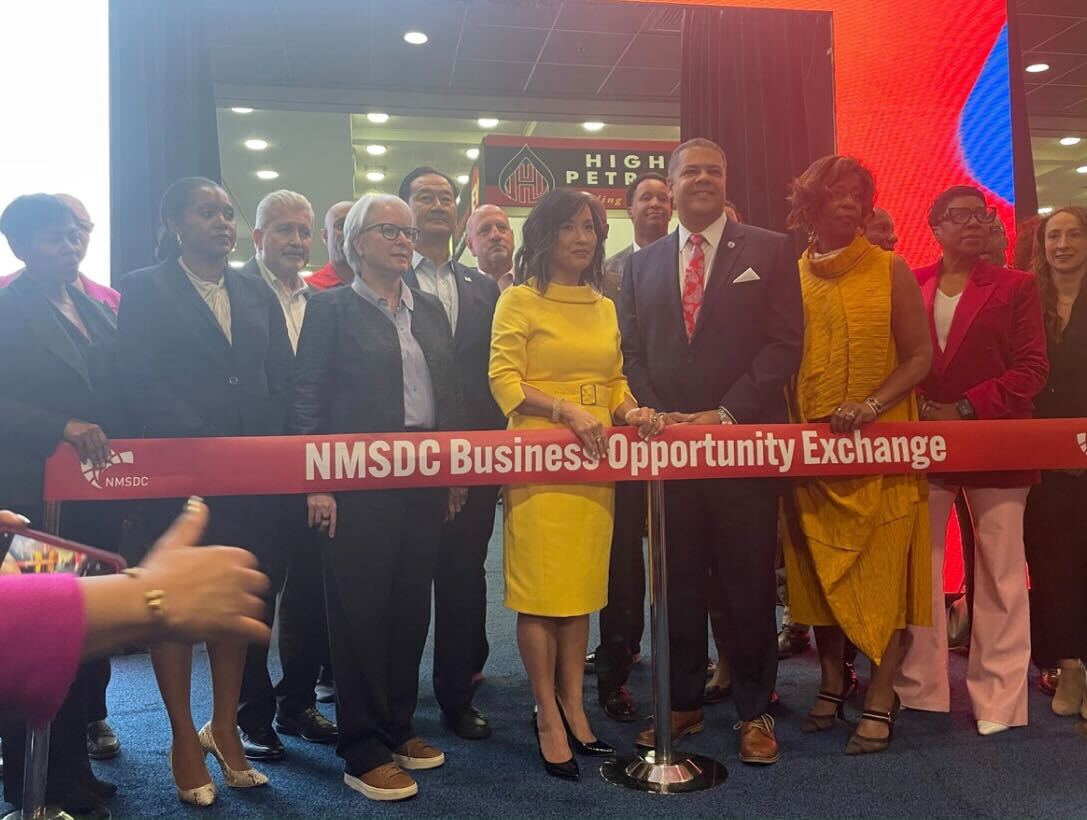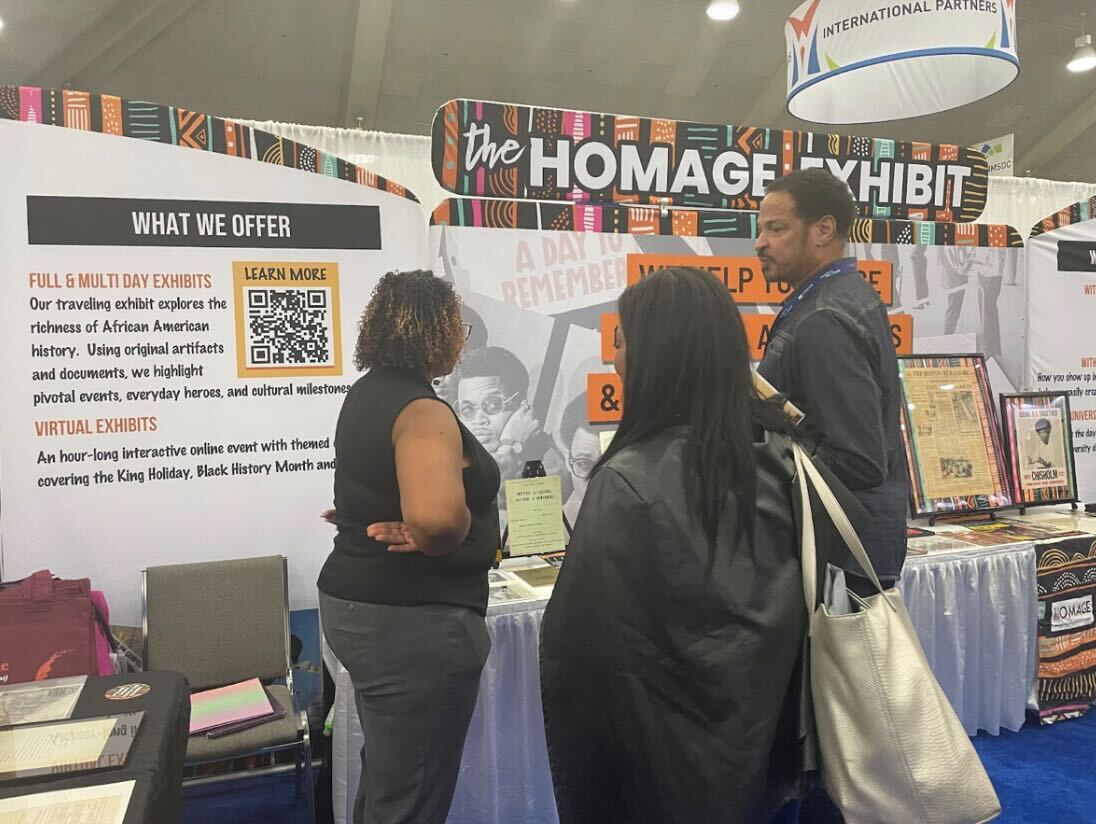
November 1, 2023
Annual Closing Equity Gap Conference Connects Minority Businesses To Suppliers
There are over 33 Million small businesses in the U.S., employing over 46% of private sector employees
By Alecia Taylor
The annual Closing Equity Gap Conference took over downtown Baltimore for four days, bringing together thousands of people to connect and diversify their businesses.
The conference was hosted by the National Minority Supplier Development Council (NMSDC) and Minority Business Development Agency (MBDA) and took place at the Baltimore Convention Center from Oct. 21-25. While the location changes every year, the mission remains consistent. Every year, thousands of people attend the conference to help close the equity gap between the majority and minority communities within the business industry. This year’s conference featured the Maryland Gov. Wes Moore, workshops for entrepreneurs, and the highly anticipated exhibition, “The Exchange.”
“If you look at our society, more than 40% of the U.S. population are minority,” said Ying McGuire, the current CEO and president of NMSDC.
“If 40% of the population is standing sideline, that’s not going to help our economy. The global competitiveness of this country relies on all hands on deck.”
Although minorities make up a generous amount of businesses, there are still equity gaps between minority-owned businesses and white businesses. McGuire said to boost the economy and support these businesses, these businesses must have support.
There are over 33 million small businesses in the U.S., employing over 46% of private sector employees, according to the Small Business Administration Office of Advocacy. Around 3 million businesses are Black-owned, according to the U.S. Census.
Black-owned businesses have poured into the economy by generating around $206 billion for the U.S. economy. This includes mom-and-pop shops and businesses like Ericka Koumare’s, a home care agency, which are interwoven within our society and pour their hearts, their souls, and sometimes–all of their money–into these businesses.
However, equity issues such as funding, capital, and business relationships stand in the way of businesses flourishing to their full potential.
Around 46% of Black business owners said they had trouble accessing capital, according to Bank of America’s 2022 Women & Minority Business Owner Spotlight.

Photo by Alecia Taylor
The conference allowed large and small businesses to connect and mingle in a professional setting to bridge those gaps.
One of the main focuses of the conference was connecting to diverse suppliers–a business strategy that incorporates a diverse selection of minority-owned businesses as suppliers and vendors.
Minority-business owners like Koumare, the owner and CEO of Serene Home Care Agency LLC based in Philadelphia, traveled to make connections with one another. Serene Home Care focuses on connecting families with home care providers for seniors. While at the conference, she met with healthcare suppliers to help grow her business.
“This is an awesome opportunity,” said Koumare. “I’m glad they have a showcase that aims to close the gap. These connections will help [entrepreneurs] make valuable connections on their journeys to help others.”
“The Exchange” exhibition was one of the highlights for many conference-goers. The exhibition, open for a day and a half, gathered hundreds of suppliers like Amazon, Walmart, and Target to connect with businesses to grow their diverse supply chains.
Although there were big names with booths at the exhibition, there were a few businesses with booths to advertise themselves to suppliers.
Nia McAdoo, the curator for the Homage Exhibit, a collection of private Black artifacts, was among those advertising their businesses for suppliers. The Homage Exhibit is run by McAdoo and her husband, Morris McAdoo.
“You’ll see a lot of larger companies looking to connect with smaller suppliers, but we’re the flip side,” said McAdoo. “It’s our goal to meet corporations who are looking to work with diverse businesses.”
The McAdoos’ collection features artifacts signed by historical figures like Coretta Scott King, Frederick Douglass, and politicians. By connecting with businesses, the couple hopes to engage communities with Black history in a new and engaging setting.
While the conference brings together all working parts of the business industry, McGuire hopes everyone is looking at the conference as more than that.
“It’s not just a celebration to call for action for communities to come together and to elevate minority businesses in the topic of the proper supply chain,” she said. “But also federal, state, local government procurement practice.”
RELATED CONTENT: The NMSDC Acres Program Is Supporting Black Farmers’ Agricultural Businesses